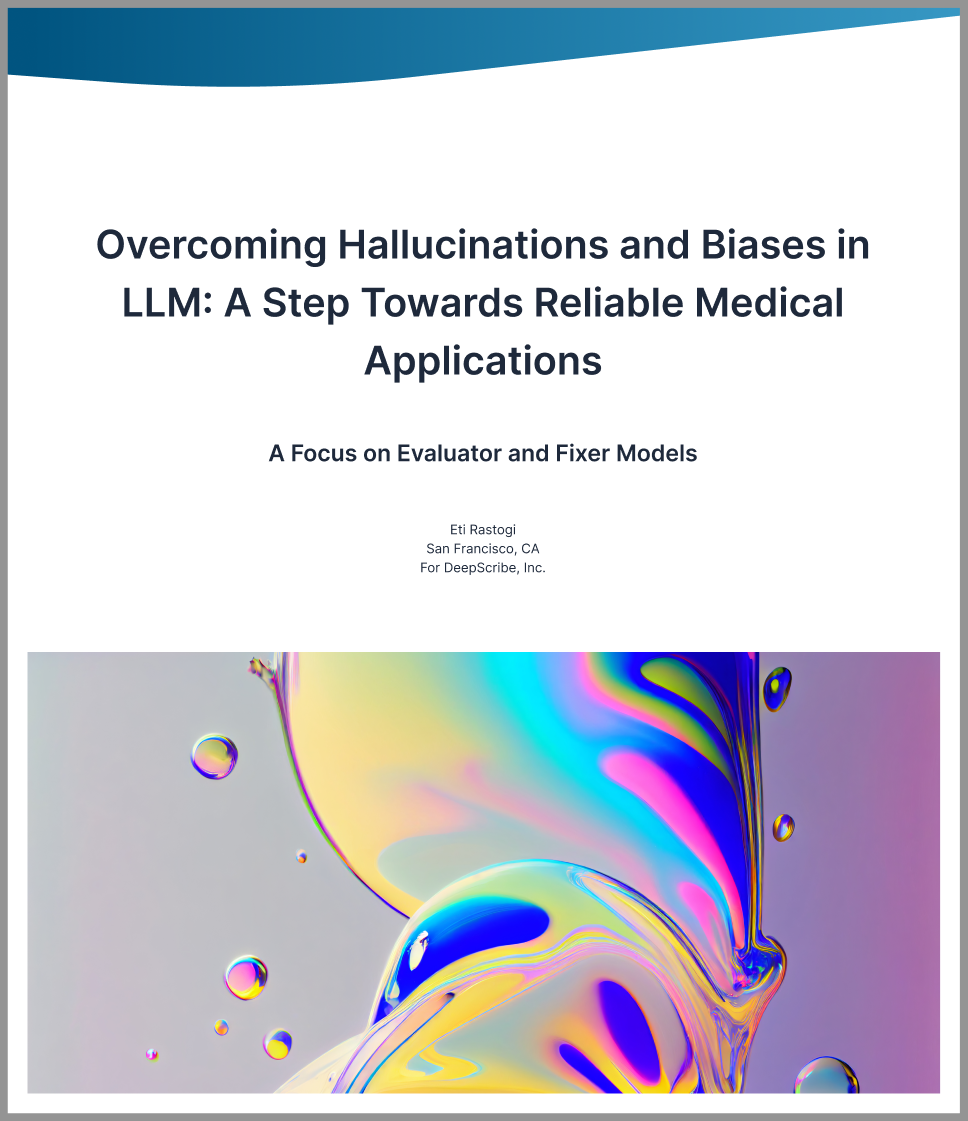Overcoming Hallucinations and Biases in LLM: A Step Towards Reliable Medical Applications
By modifying the role of LLMs and turning them into evaluators capable of self-correction, we can significantly improve their reliability and make them a more dependable resource in the medical domain.


Large language models (LLMs) such as GPT-4, offer tremendous potential in various fields, including medicine. However, biases and hallucinations that emerge from these models can have severe consequences in the medical domain.
To mitigate the potential negative effects of biases and hallucinations, research proposes a novel role for LLMs through Evaluator and Fixer models, which are tasked with assessing their own generated outputs for errors and inaccuracies.
A case example demonstrates the effectiveness of this approach through a side-by-side comparison of notes generated with and without the Evaluator and Fixer models in play.
This study contributes to addressing the challenges of biases and hallucinations in LLMs, particularly within the medical domain. Further research and development in this area can pave the way for advanced language models that significantly impact the healthcare industry and support clinicians in delivering optimal care without exposure to undue risk.

text
Related Stories
Realize the full potential of Healthcare AI with DeepScribe
Explore how DeepScribe’s customizable ambient AI platform can help you save time, improve patient care, and maximize revenue.




